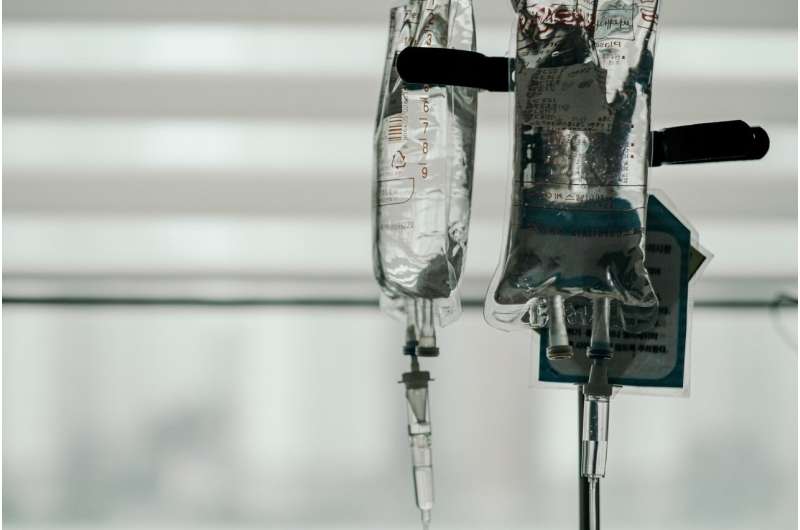After cardiac arrest, sedation may improve the chance of surviving and regaining normal brain function

New research conducted in mice indicates that administering sedatives when circulation is restored following cardiac arrest may help to improve survival and brain function.
The study, which was led by investigators at Massachusetts General Hospital (MGH) and is published in Anesthesiology, suggests that this strategy should be tested in patients to help improve their outcomes after cardiac arrest.
Following cardiac arrest, mice received an intravenous infusion of the sedatives propofol or dexmedetomidine, or saline (as a control), starting when the animals' circulation spontaneously returned or at 60 minutes after return of spontaneous circulation.
Body temperature was lowered during sedation, and the brain's blood flow and electrical activity were monitored.
Sedation with propofol or dexmedetomidine starting at return of spontaneous circulation improved survival compared with saline control (81%, 88%, and 25% survival in the respective groups of mice).
Sedation starting at return of spontaneous circulation also accelerated the recovery of brain activity (as assessed through electroencephalogram, or EEG, tests) and lessened blood flow abnormalities in the brain called cerebral hyperemia. Delayed sedation (60 minutes after return of spontaneous circulation) did not have these beneficial effects.
"Sedation in comatose post-arrest mice stimulated the recovery of slow wave EEG activity in the brain while post-arrest comatose mice that received no sedation remained with very little EEG activity for many hours. Faster recovery of slow wave EEG activity with sedation was associated with better neurological outcomes and survival after cardiac arrest," says senior author Fumito Ichinose, MD, Ph.D., an attending physician in the Department of Anesthesia, Critical Care and Pain Medicine at MGH and the William Thomas Green Morton Professor of Anesthesia at Harvard Medical School.
"Our results suggest that sedation of patients recovering from cardiac arrest in the intensive care unit may protect the brain."
More information: Takamitsu Ikeda et al, Post-cardiac Arrest Sedation Promotes Electroencephalographic Slow-wave Activity and Improves Survival in a Mouse Model of Cardiac Arrest, Anesthesiology (2022). DOI: 10.1097/ALN.0000000000004390



















